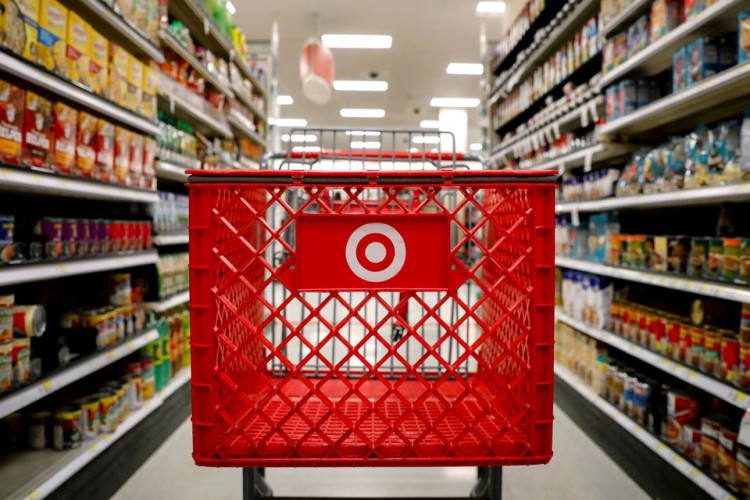Target Corp. warned Wednesday that tariffs imposed under President Donald Trump's trade agenda could lead to "massive potential costs," compounding existing challenges as the retailer faces a sales downturn, consumer backlash over its diversity policies, and declining shopper confidence. CEO Brian Cornell said price hikes remain a "very last resort" but cannot be ruled out.
Sales fell 2.8% in the first quarter compared to a year earlier, while same-store sales-those at locations open at least a year-declined 3.8%. The company cited declining foot traffic and smaller basket sizes as key factors. "In the first quarter, our team and our business faced an exceptionally challenging environment," Cornell told analysts.
The retailer also revised its guidance, forecasting a further drop in sales over the next three months. "We believe it's prudent to assume top-line pressures will continue in the near term," Cornell said.
Much of the pressure comes from a convergence of economic and political forces. Trump's tariffs, especially the 10% blanket levy on most imports, have raised costs across the retail sector. Target, which imports about 50% of its inventory-including approximately 25% from China-is particularly exposed.
"The difficulty level has been incredibly high given the rates we're facing and the uncertainty about how these rates in different categories might evolve," Cornell said. "We have many levers to use in mitigating the impact of tariffs and price is the very last resort."
Analysts warn that tariffs could force the company to raise prices or accept tighter margins. Target is in a "challenging position," wrote Steven Shemesh, retail analyst at RBC Capital Markets. "More than half of their inventory is discretionary, and consumers are pulling back."
The pressure has been compounded by controversy surrounding Target's rollback of its diversity, equity, and inclusion (DEI) programs. On January 24, days after Trump returned to office, Target announced it would end hiring quotas for minority candidates, disband its racial justice executive committee, and pivot to a new strategy called "Belonging at the Bullseye."
The changes sparked criticism from both inside and outside the company. Anne and Lucy Dayton, daughters of one of Target's co-founders, called the move "a betrayal." Reverend Jamal Bryant led a 40-day boycott during Lent, with support from other prominent Black leaders including Reverend Al Sharpton. Protestors also picketed Target's Minneapolis headquarters.
Cornell acknowledged the internal strain in a staff memo, saying, "I recognize that silence from us has created uncertainty, so I want to be very clear: We are still the Target you know and believe in." He added, "It's been a tough few months."
Target's progressive identity-rooted in its Minneapolis headquarters and post-George Floyd DEI expansion-left the company especially vulnerable to backlash. With 37% of its stock value lost over the past year, the company's challenges reflect a broader retail sector grappling with cultural friction and volatile trade policy.
Cornell said the company is responding with a multi-year restructuring plan under a new "Enterprise Acceleration Office" and executive shake-up aimed at improving long-term growth. But short-term pressures continue to mount.
Target joins other major retailers in sounding alarms over tariffs. Walmart warned last week that Trump's trade policies were pushing up prices. "Walmart should STOP trying to blame Tariffs as the reason for raising prices," Trump posted on Truth Social. "Between Walmart and China they should, as is said, 'EAT THE TARIFFS,' and not charge valued customers ANYTHING."
Home Depot also said tariffs may lead to higher prices on selected items or reduced product lines. Meanwhile, consumer sentiment fell in May for the fourth straight month, hitting its second-lowest level on record, according to a University of Michigan survey.




